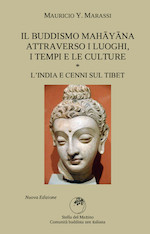By the time I was finally able to throw off my takuhatsu neurosis, my philosophy regarding luck had pretty much taken shape. Generally speaking, I‘m not interested in talking about fortune or fate. As a human being trying to live out the spirit of genuine religious teachings, you have to have the fundamental attitude of facing whatever comes up regardless of good luck or misfortune. Every time you try to succeed at something that is a little beyond your natural capacity, you generally wind up crying over the spilled milk of your failure and, to that extent, there can never be any total peace of mind. When you settle on an immovable peace of mind as your true religious practice, this has no connection whatever to luck, good or bad. The zazen practitioner has to sit bearing in mind those words of encouragement, “Every day is a good day,” and “Whatever happens this is an auspicious occasion” (1) . Although whichever way things evolve is fine, we still have to do our best to make good choices. If you are driving down the street and have the choice of either sticking to your own lane because that is the correct one or moving over into the opposite lane to avoid colliding with an oncoming car that is careening down the road at you, then moving out of the way of the oncoming car is the way your life should fall. When I went out on takuhatsu, I could do so with a simplistic attitude of just going for a walk whether anyone put something into my bowl or not. But if my life depends on takuhatsu, and I need to do it efficiently in order to have time to do the other work in the temple plus have time for zazen and study, all of which constitute the vow by which I live my life, it is only natural to choose a route where I know the contribution is likely to be generous. The true meaning of “whatever way I fall” doesn’t deny luck or fortune. It sees luck happening within whatever way I fall. That is, even if I fall into good luck or circumstances, that is my great joy. And, if I meet some bad luck, then that is my joy and fortune. Being happy and laughing, every day is a good day. And, likewise, being sad and hopeless is also a good day. Thinking that once we have attained deep faith or have had some great enlightenment experience our whole life will be one joyous delight after another and all sadness will be swept away, so that all we can see is paradise. This is nothing but a fairy tale. Living a life of true reality, while experiencing an ongoing restlessness of, now a moment of alternate moments of joy and sadness, actually, there has to be a settling into one’s life in a much deeper place where you face whatever comes up. Likewise, true religious teaching is not a denial of our day-to-day predicaments, it is not cleverly glossing over reality, or feigned happiness. On the contrary, true religious teaching has to be able to show us how we can swim through one wave at a time, that is, those waves of our life of now laughing, now crying, the waves of prosperity or adversity. Studying and practicing the buddhadharma is neither a kind of academic exercise to be carried out only after your livelihood has been secured, nor some sort of zazen performed when circumstances are favorable. I was forced to search out what true religion is when I was not unlike a stray dog always badgered by anxieties over daily life, having to pick up whatever scraps I could. As long as we are alive, there will always be fortunate things and unfortunate things happening in our lives. Inevitably we go through times of utter collapse as well. Frequently, during that period prior to throwing off my takuhatsu neurosis, there were days when one person after another would tell me to go away. Sometimes I would just get so demoralized that I would quit and spend the rest of the day at the zoo. Or, if I didn’t have any money, I would go to the library wearing my sedge hat and straw sandals. But, eventually, as I grew used to going out, I began to discover that even on days when I would start off badly, instead of becoming depressed, I began to think instead that I was just unlucky that morning. Little by little, I would get back my sprit and walk through the streets searching for that gold vein and, inevitably, my luck would change. When you start off like a house on fire, then you have to pay particularly attention, because while you are all relaxed thinking about what a great morning it has been, bang, your luck doesn’t last forever. Your happy-go-lucky attitude is clear to those around you and you end up having to go home with even less than average. Whenever I started off badly, I just figured later my luck would change for the better. And when I started out lucky, I knew I would have to be on my toes. No matter how much experience you have had, there are times when your intuition about where to go that day completely misses the mark. When one is restricted to bringing in the most results in the least amount of time, completely missing the mark can be critical. You could say that good fortune or luck comes into play precisely when you are looking for a certain result in a limited time. But if you are looking at things from the viewpoint of eternity, then there is no such thing as luck. While settled in the attitude that whichever way our life falls we feel grateful, we can feel the varying textures of fortune and misfortune in terms of joy and bitterness during the day’s walk. If we look at humankind from a long view of billions of years, this animal called Homo sapiens is nothing more than a single existence that suddenly appeared in this universe and will leave it without a trace. A single day in the life of this very small human species is just one tiny joy, one minute of bitterness. Without an attitude that whatever happens is okay, we are going to wind up neurotic. Still, even though whatever may happen is okay, if you do not apply any businesslike principle to your activities, even to one like takuhatsu, you will end up a fool. Going the Middle Way between the neurotic and the fool is precisely what doing takuhatsu is about.
Notes:
1) Uchiyama Roshi has taken the first character of the Chinese word for fortune which is kikkyo 吉凶 and combined it with another character to form the Buddhist term for auspicious or joyous, which is kichijo 吉祥.
Back
Se volete, lasciate un commento.
You must be logged in to post a comment.







